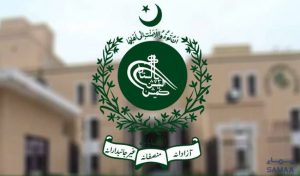Election in pakistan 2024
Tags: 2024 election updates, election, election 2024, pmln elction, ppp election, pti election

Elections in Pakistan are crucial events that shape the country’s political trajectory. Pakistan follows a federal parliamentary system, and its electoral process involves the selection of representatives at the national and provincial levels. The political landscape in Pakistan is characterized by a multi-party system, with major political players vying for power.
The electoral process typically involves the major political parties, such as the Pakistan Tehreek-e-Insaf (PTI), Pakistan Muslim League-Nawaz (PML-N), and Pakistan Peoples Party (PPP), among others. These parties often present contrasting political ideologies, policies, and visions for the country, leading to competitive and dynamic electoral campaigns.
In the lead-up to the elections, political parties engage in extensive campaigning to garner support from the electorate. Campaign strategies include public rallies, media outreach, and the presentation of party manifestos outlining their proposed policies and plans for the nation. Candidates often focus on key issues such as economic development, social welfare, and national security.
The role of media in shaping public opinion is significant during election campaigns. News outlets and social media platforms play a crucial role in disseminating information about candidates, party agendas, and the electoral process. Debates, interviews, and coverage of political events contribute to the public’s understanding of the various perspectives offered by competing parties.
The Election Commission of Pakistan (ECP) plays a pivotal role in ensuring a fair and transparent electoral process. It oversees voter registration, constituency delimitation, and the conduct of elections. Measures are taken to prevent electoral fraud, and international observers may be invited to monitor the proceedings, enhancing the credibility of the electoral process.
Key issues that often influence elections in Pakistan include economic stability, job creation, security concerns, and social development. Voters assess how well political parties address these concerns in their manifestos, and the outcomes of the elections reflect the public’s verdict on the perceived performance of the incumbent government and the promises made by competing parties.
The youth demographic in Pakistan is a significant electoral force, and political parties often tailor their campaigns to appeal to the aspirations and concerns of the younger population. Issues related to education, employment opportunities, and youth empowerment are given prominence in campaign narratives.
Elections in Pakistan also have a regional dimension, with provincial assemblies playing a crucial role in the overall political landscape. Regional parties and issues specific to certain provinces influence the electoral dynamics, reflecting the diversity within the country.
In conclusion, elections in Pakistan are intricate events that reflect the democratic aspirations of the nation. The political landscape is dynamic, with major parties competing for power by presenting diverse visions for the country’s future. The electoral process, characterized by campaigning, media influence, and public engagement, plays a vital role in shaping the direction of Pakistan’s governance. As always, for the most accurate and up-to-date information on the 2024 elections in Pakistan, it is advisable to refer to reliable news sources and official announcements from the Election Commission of Pakistan.